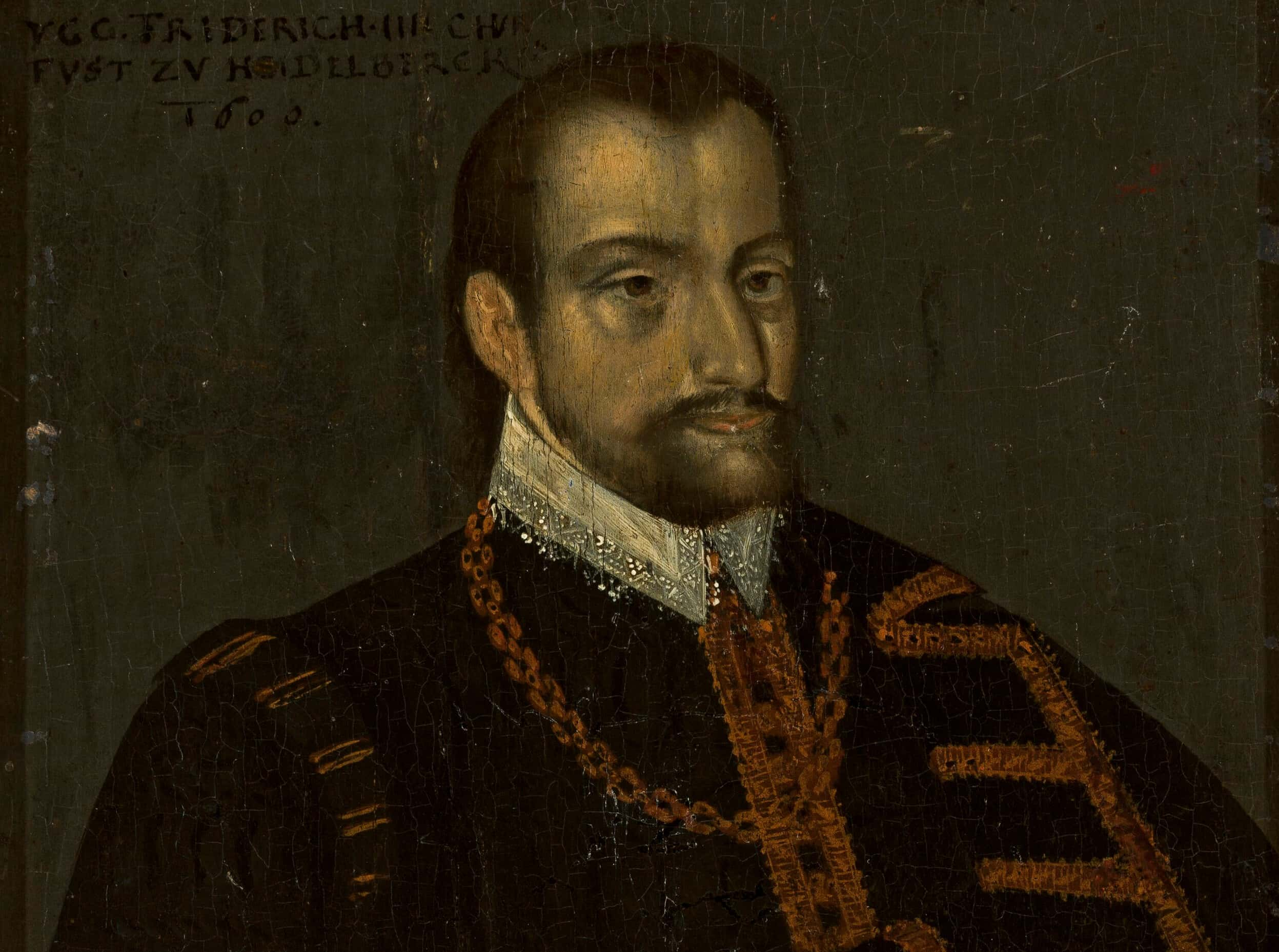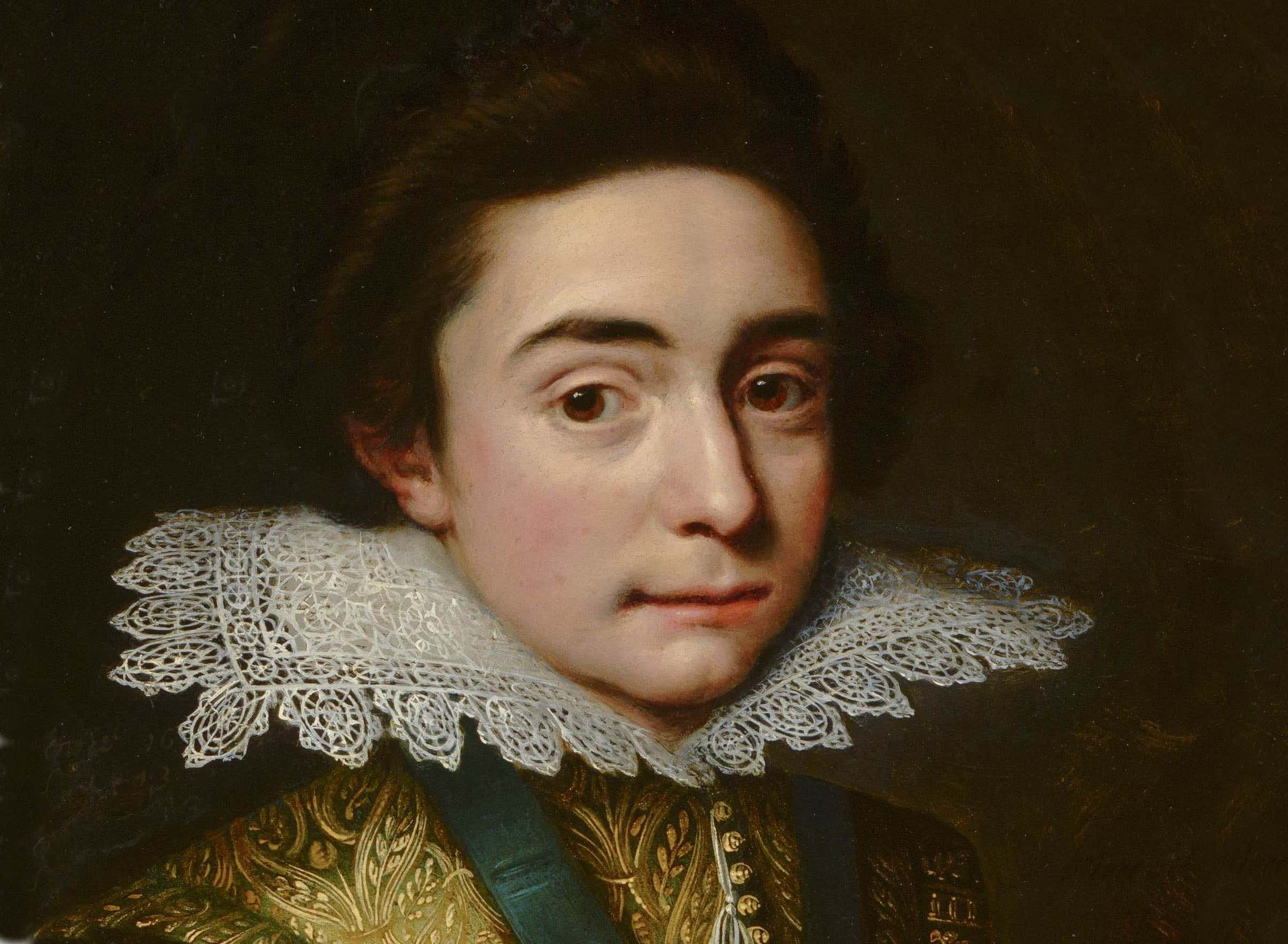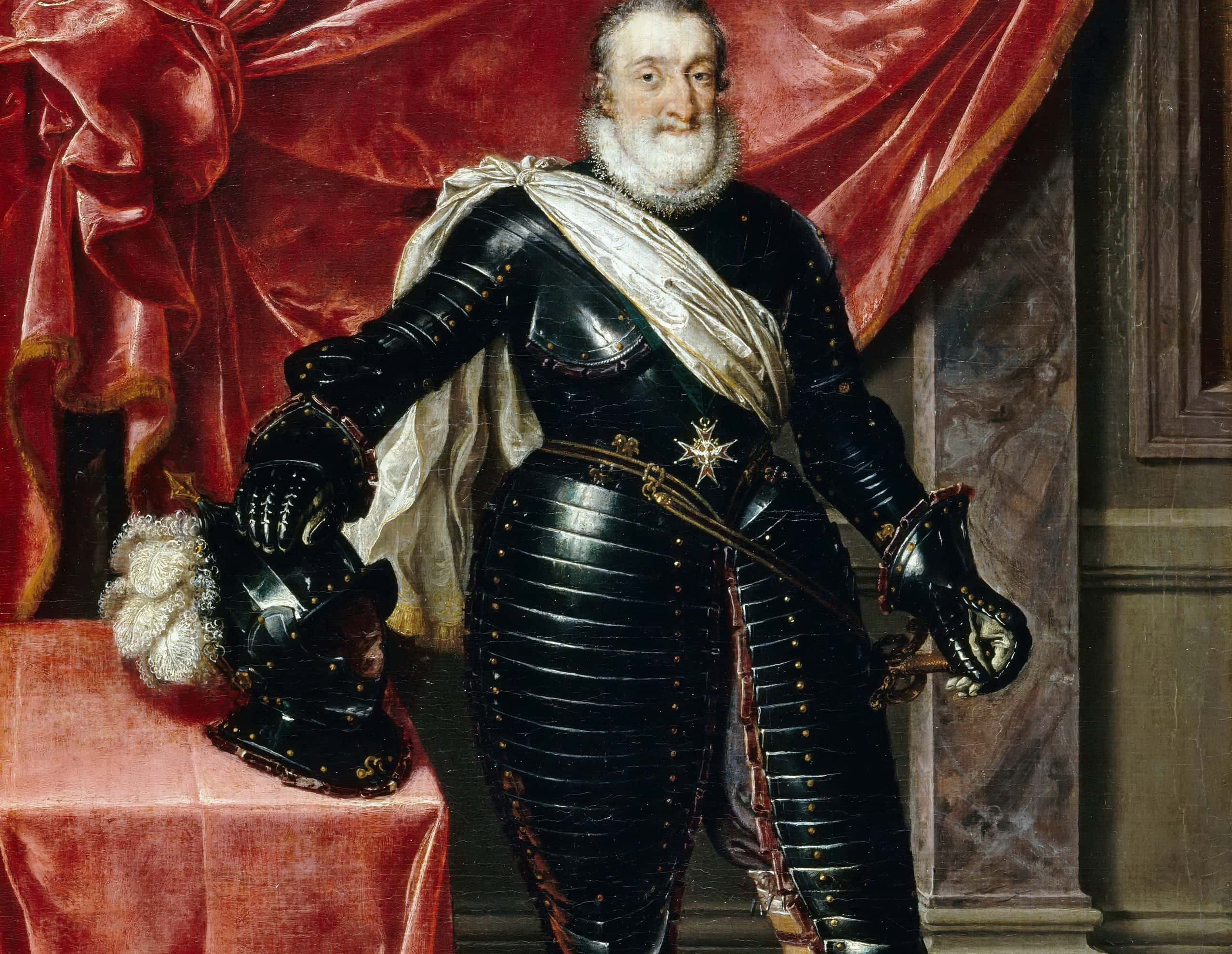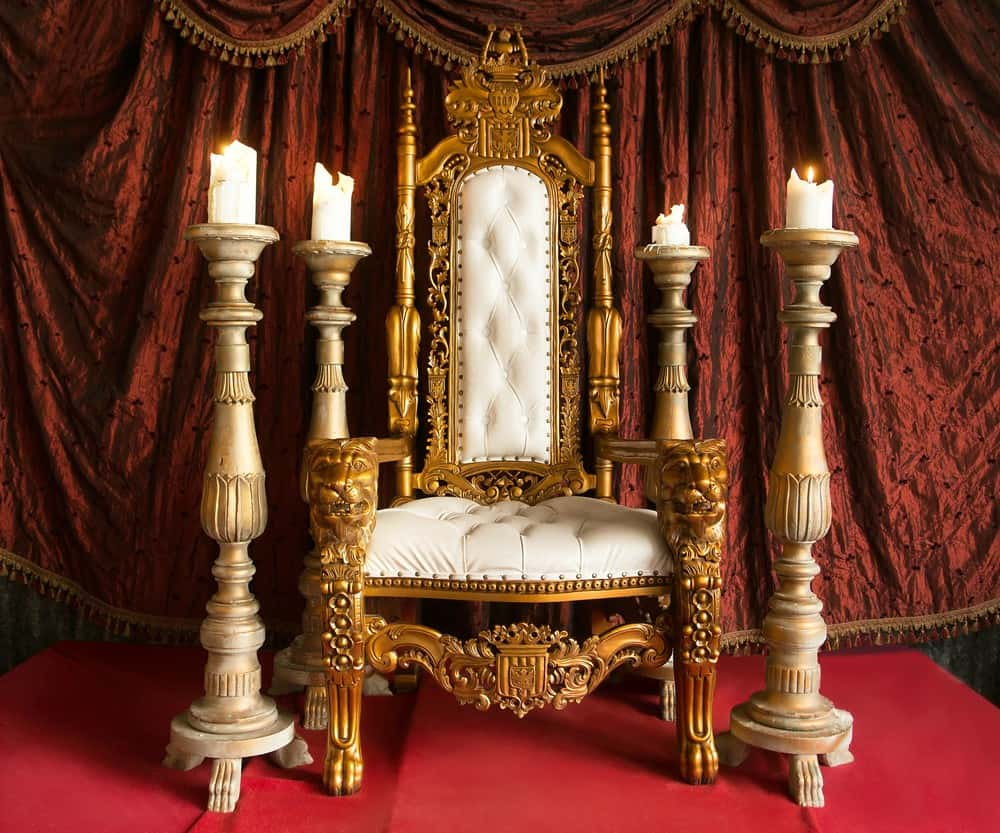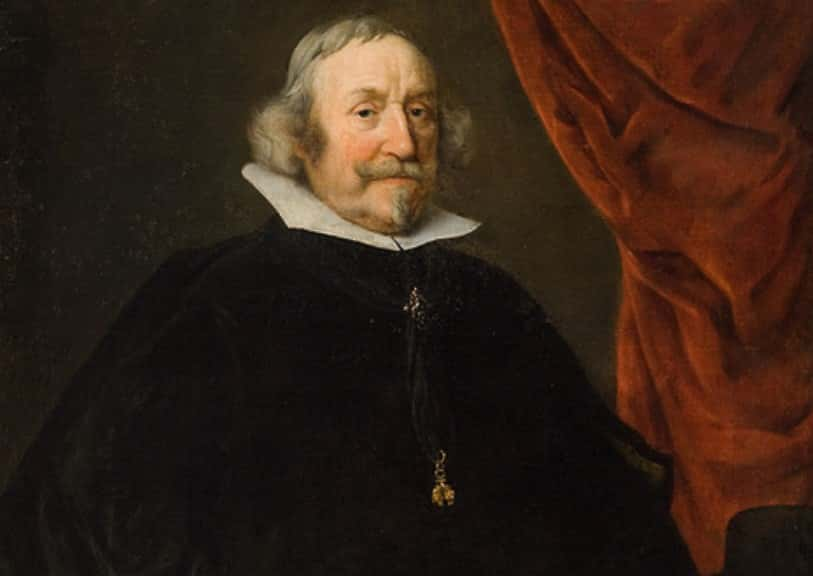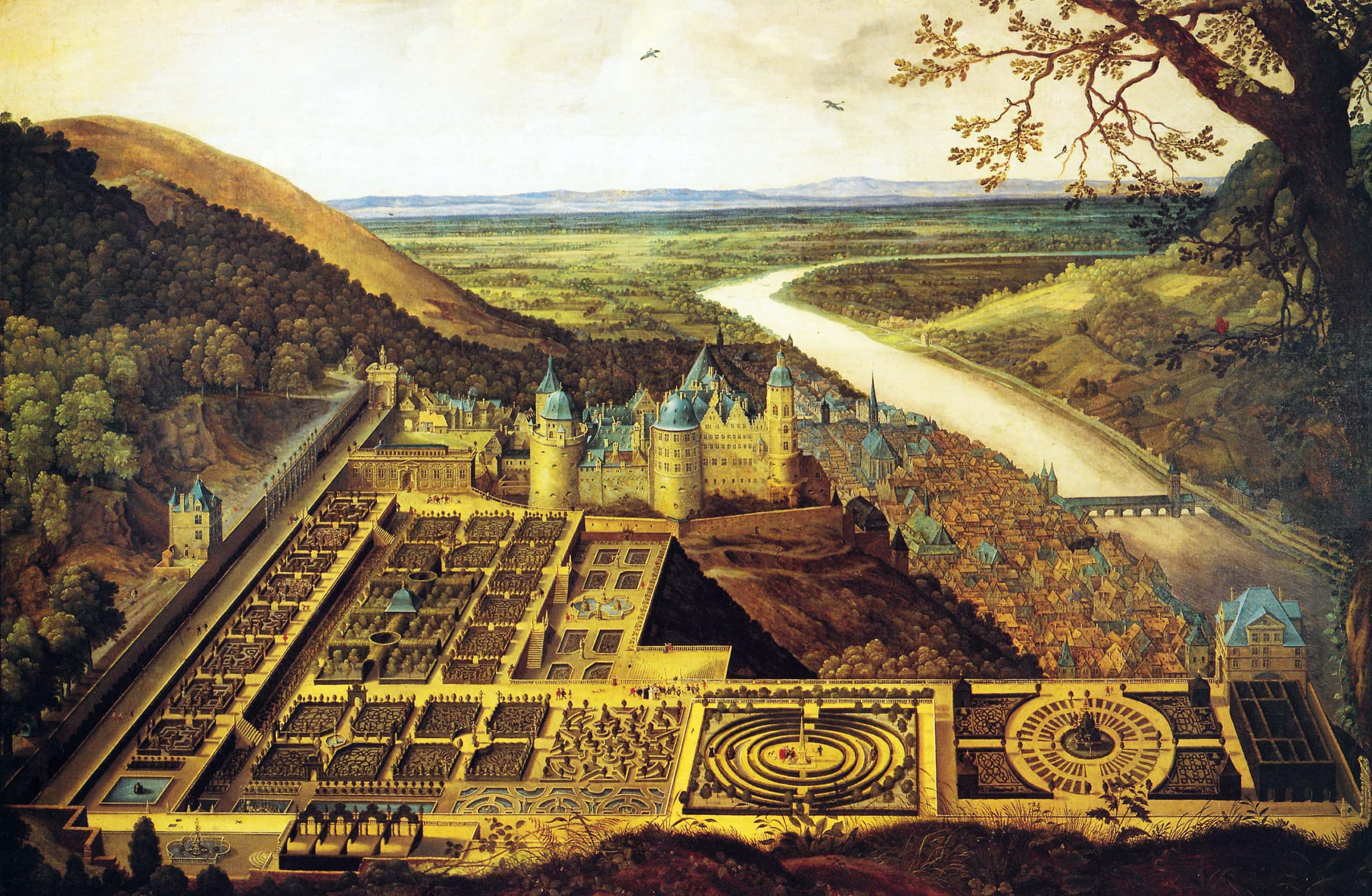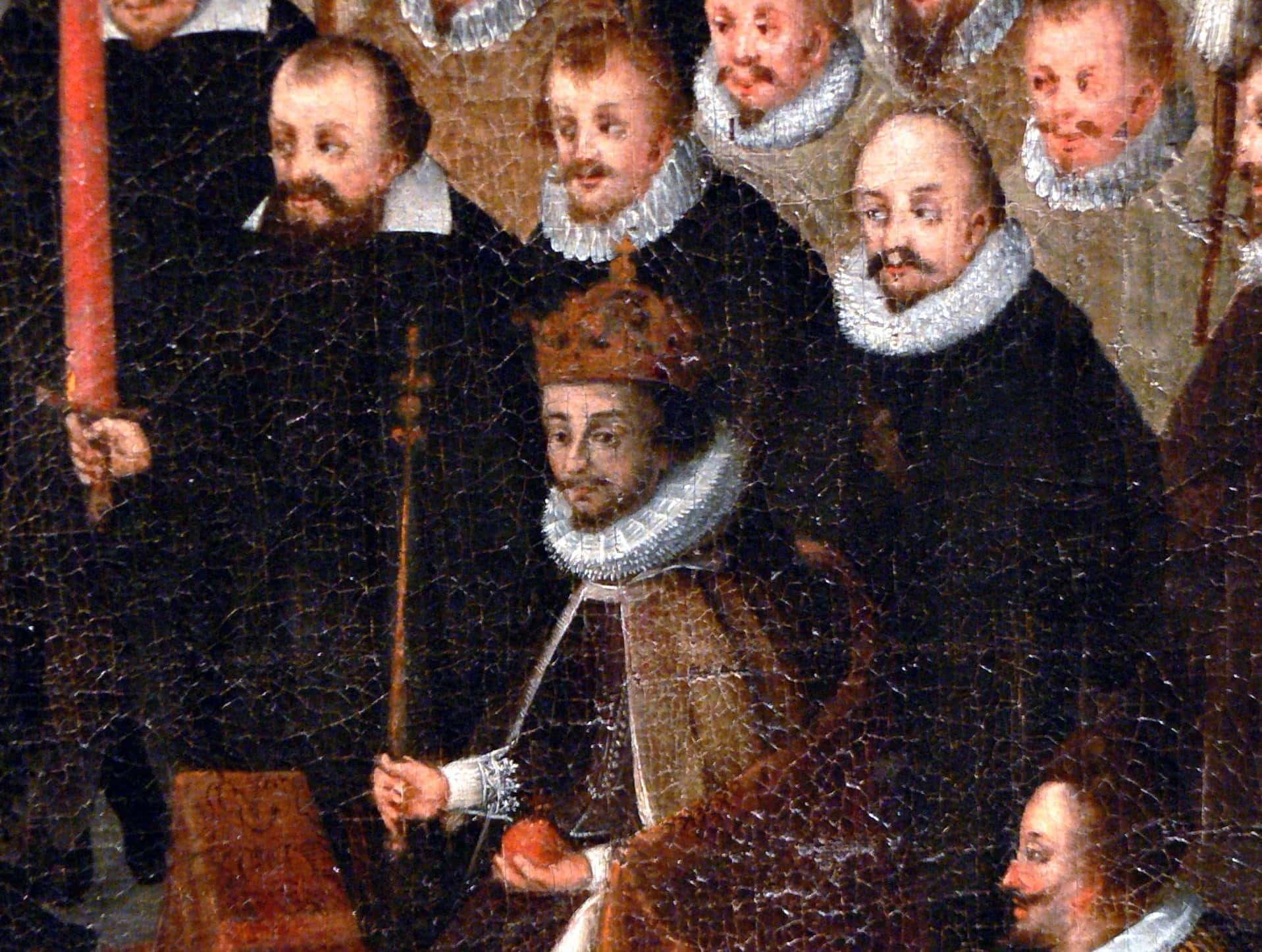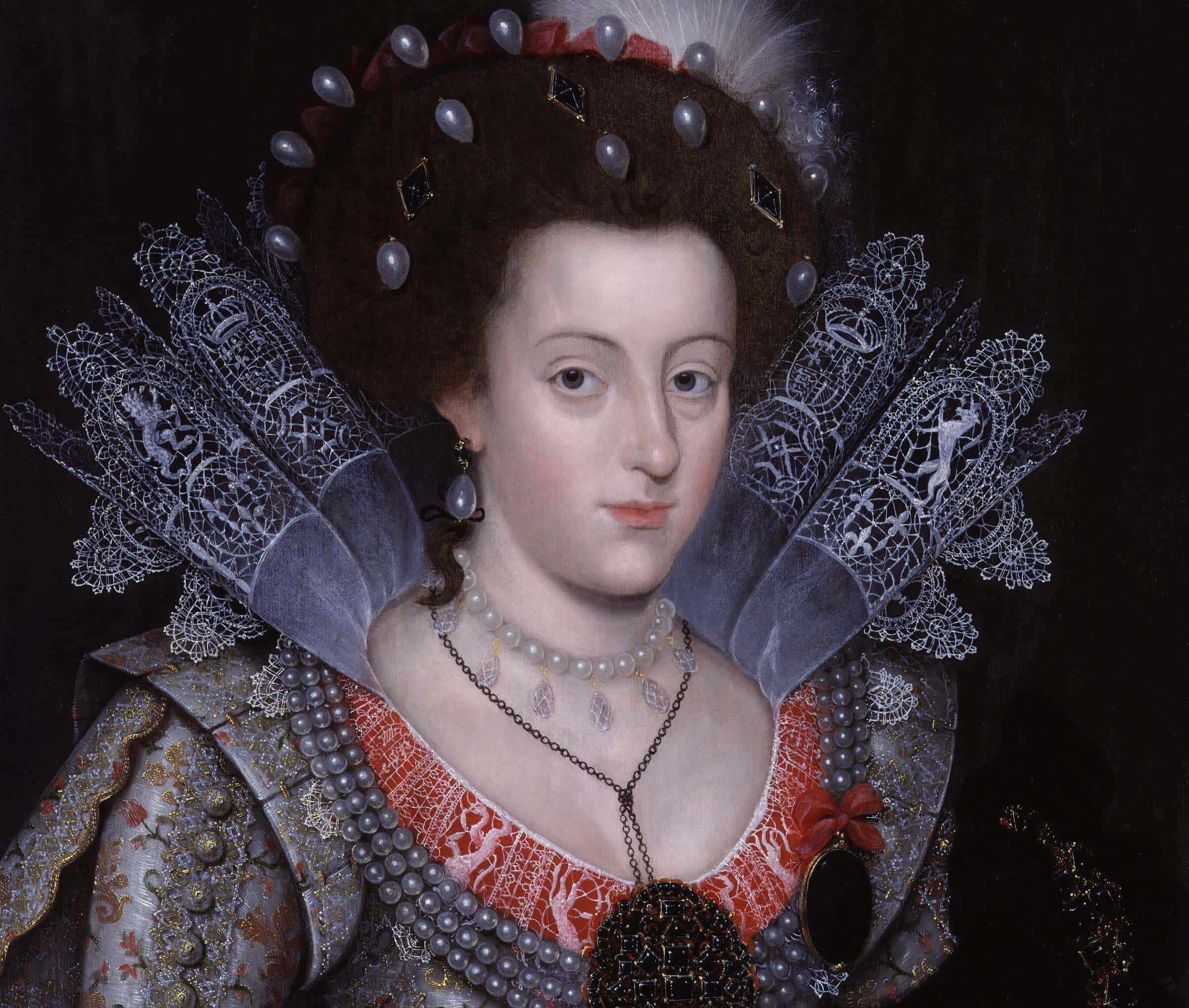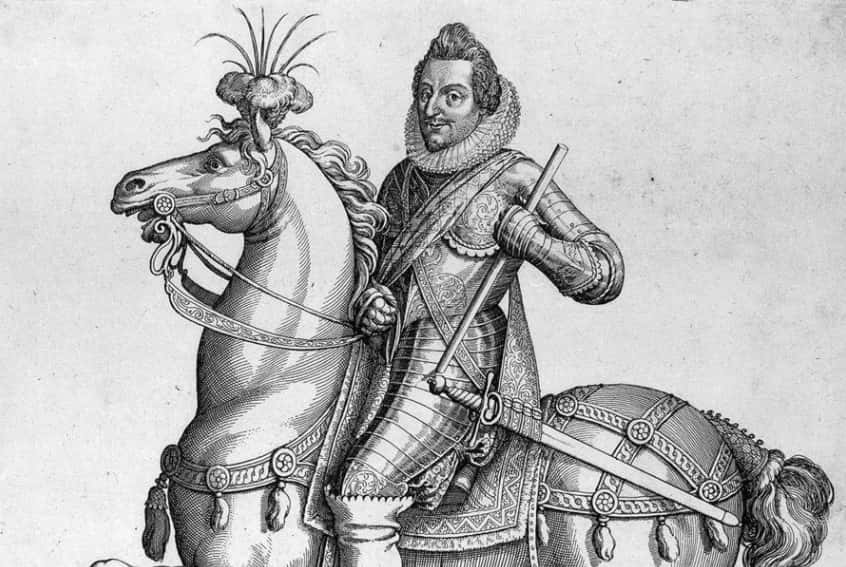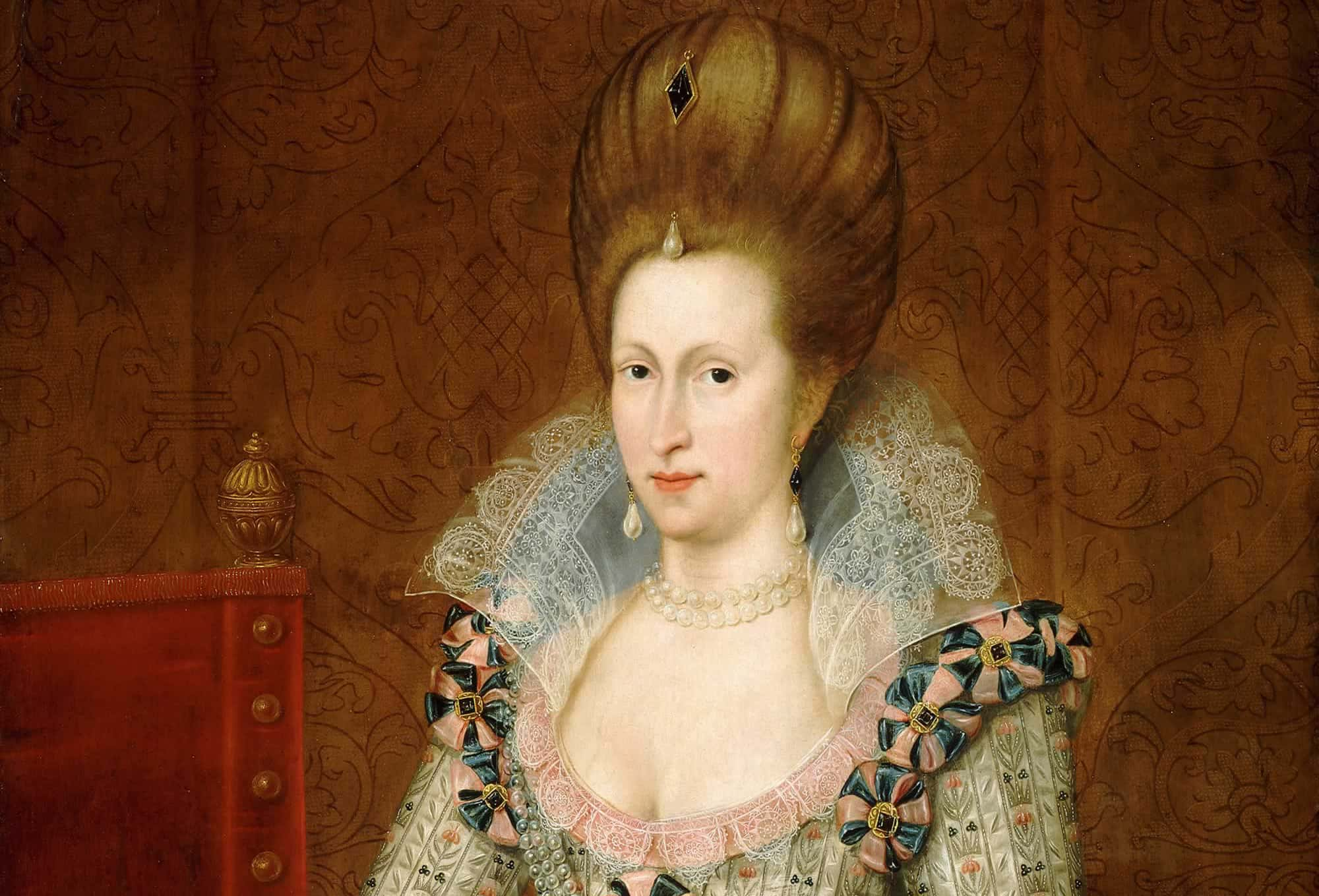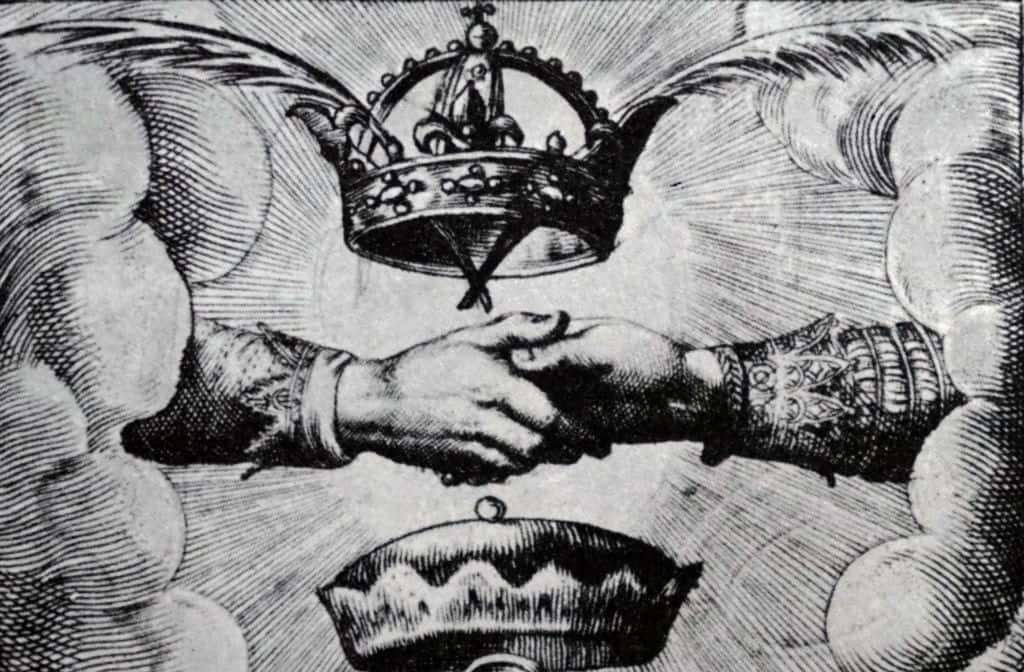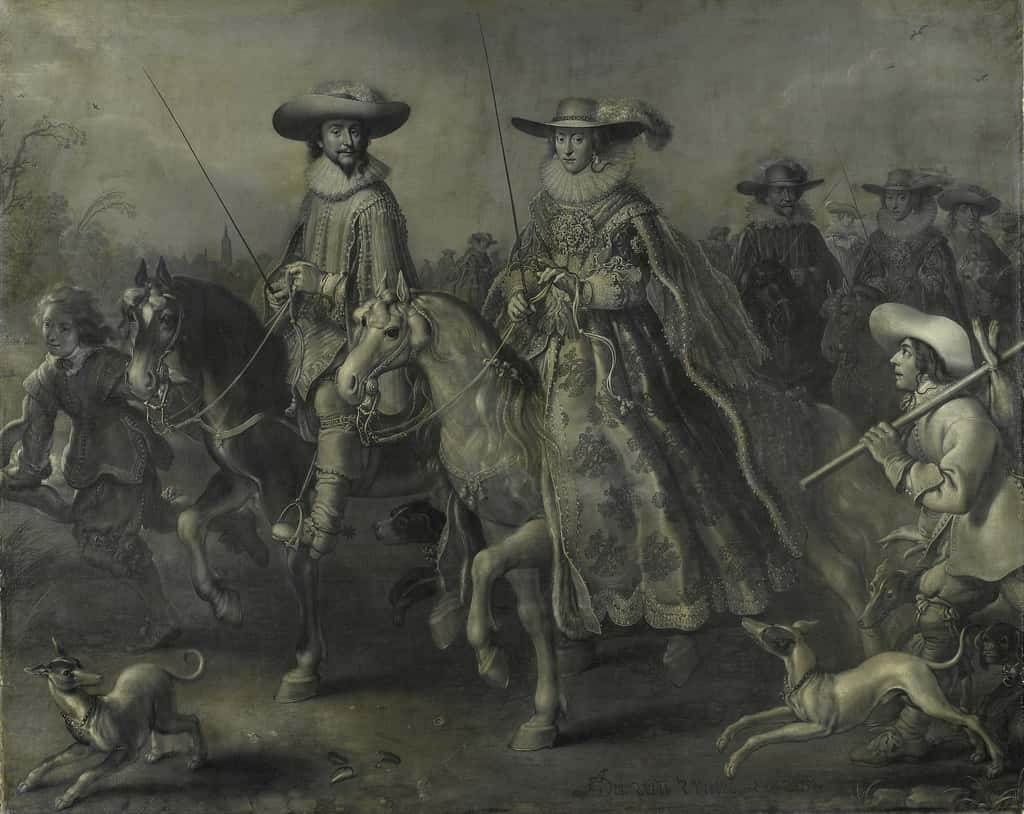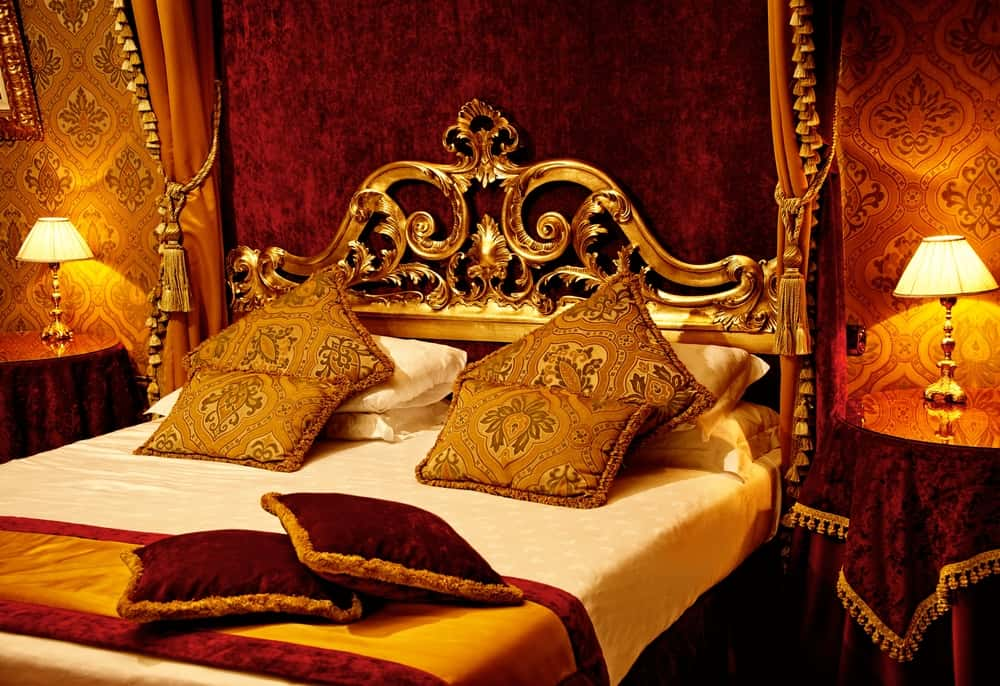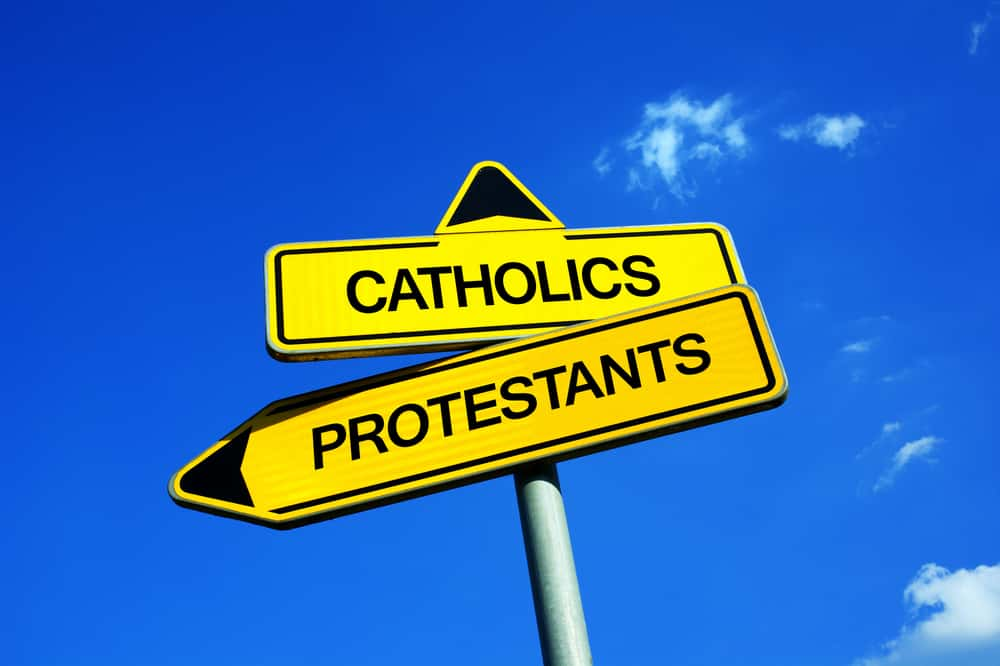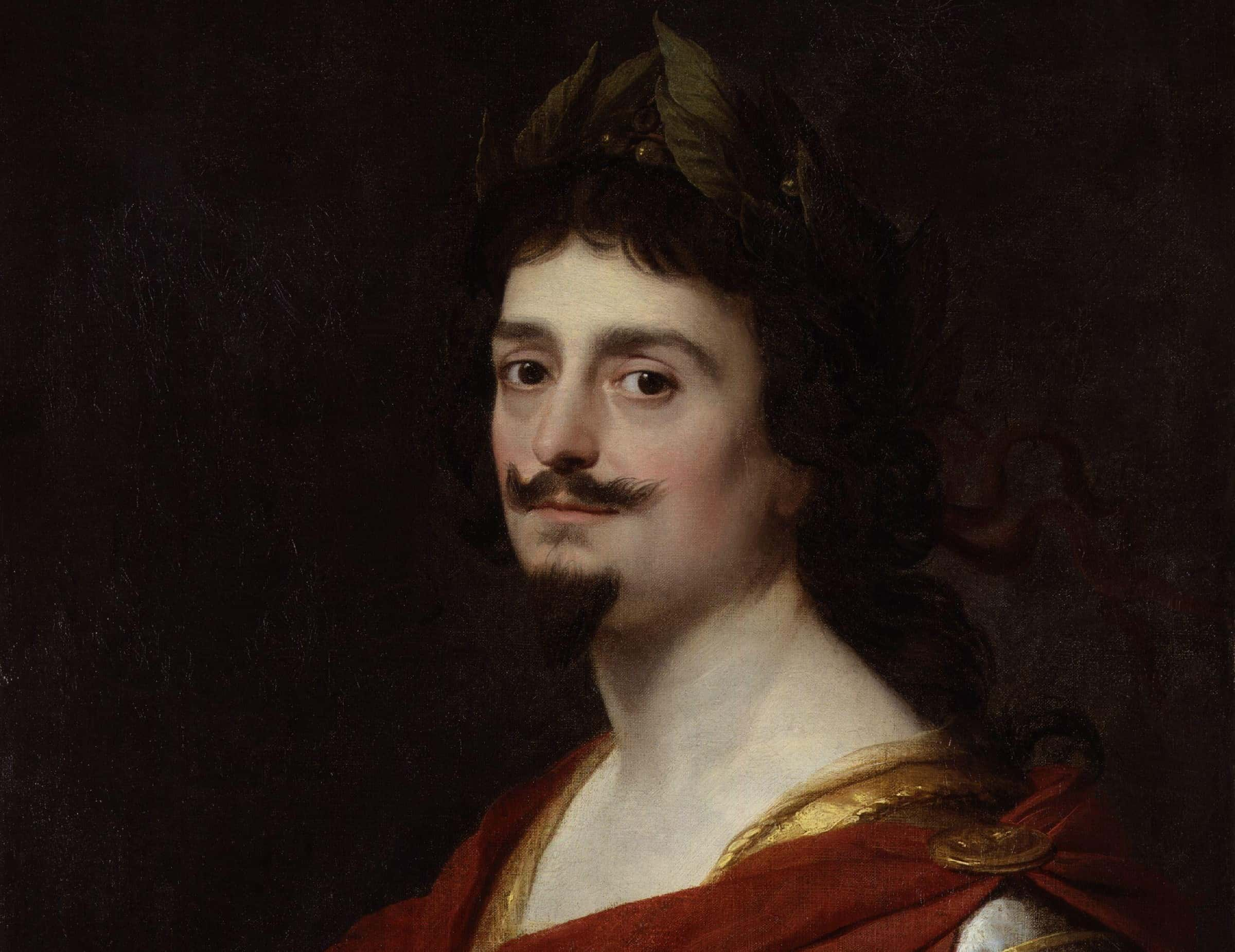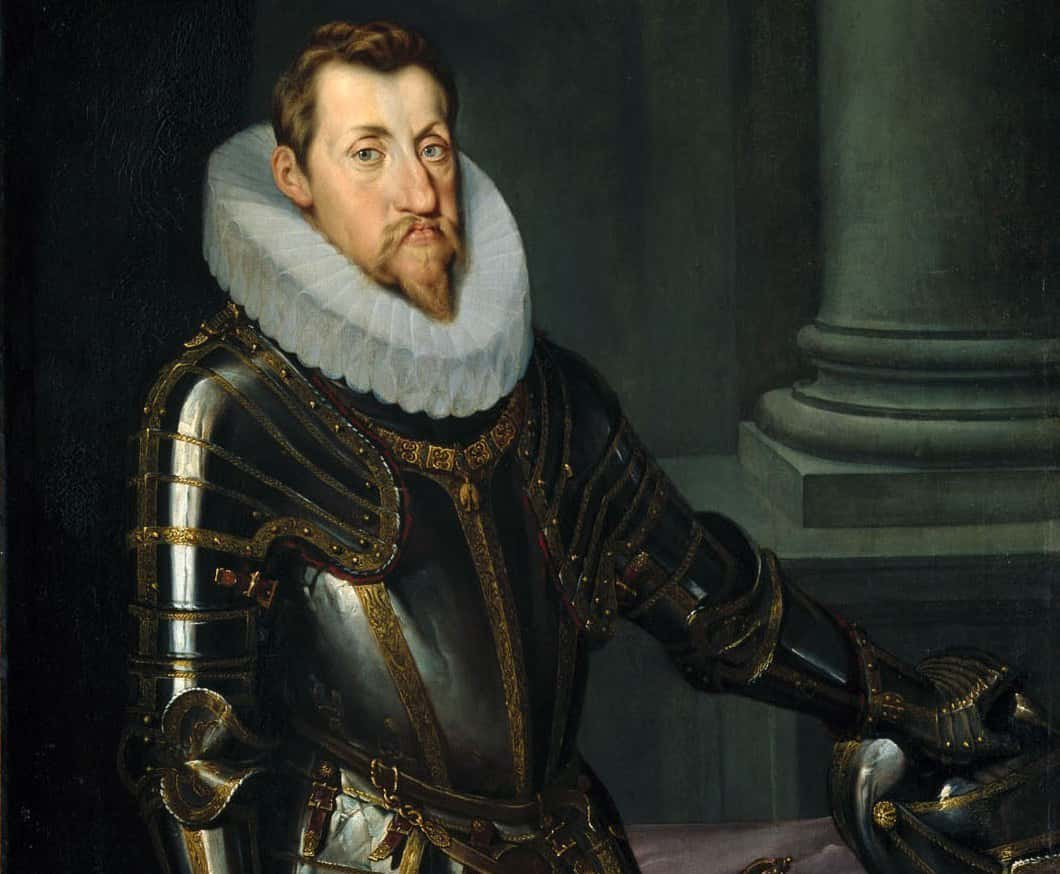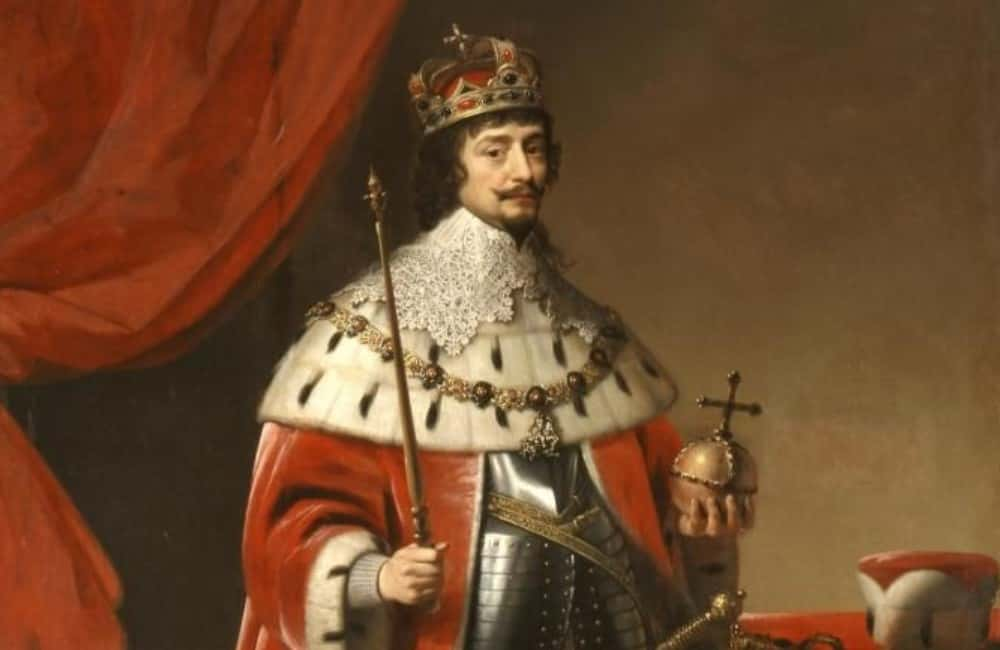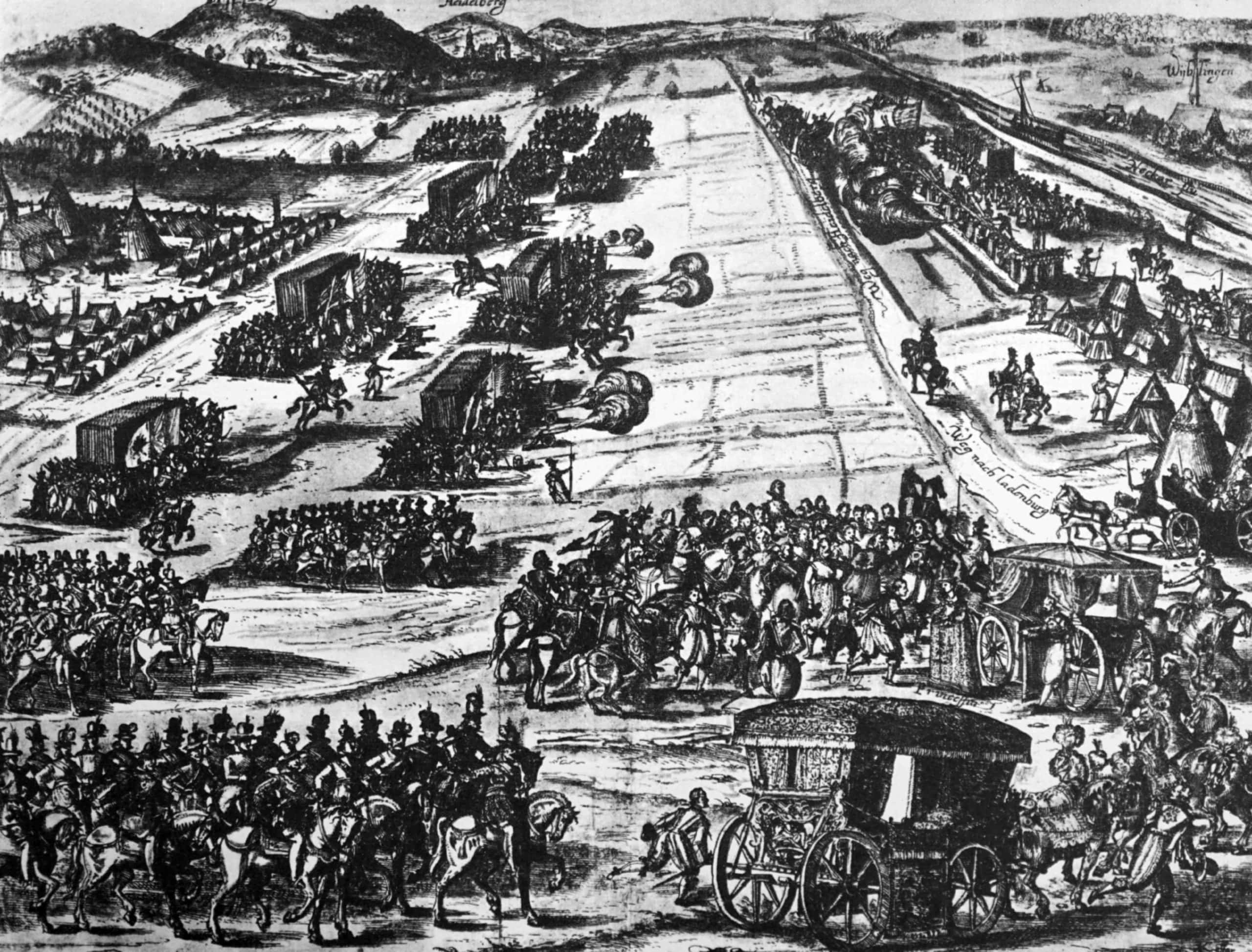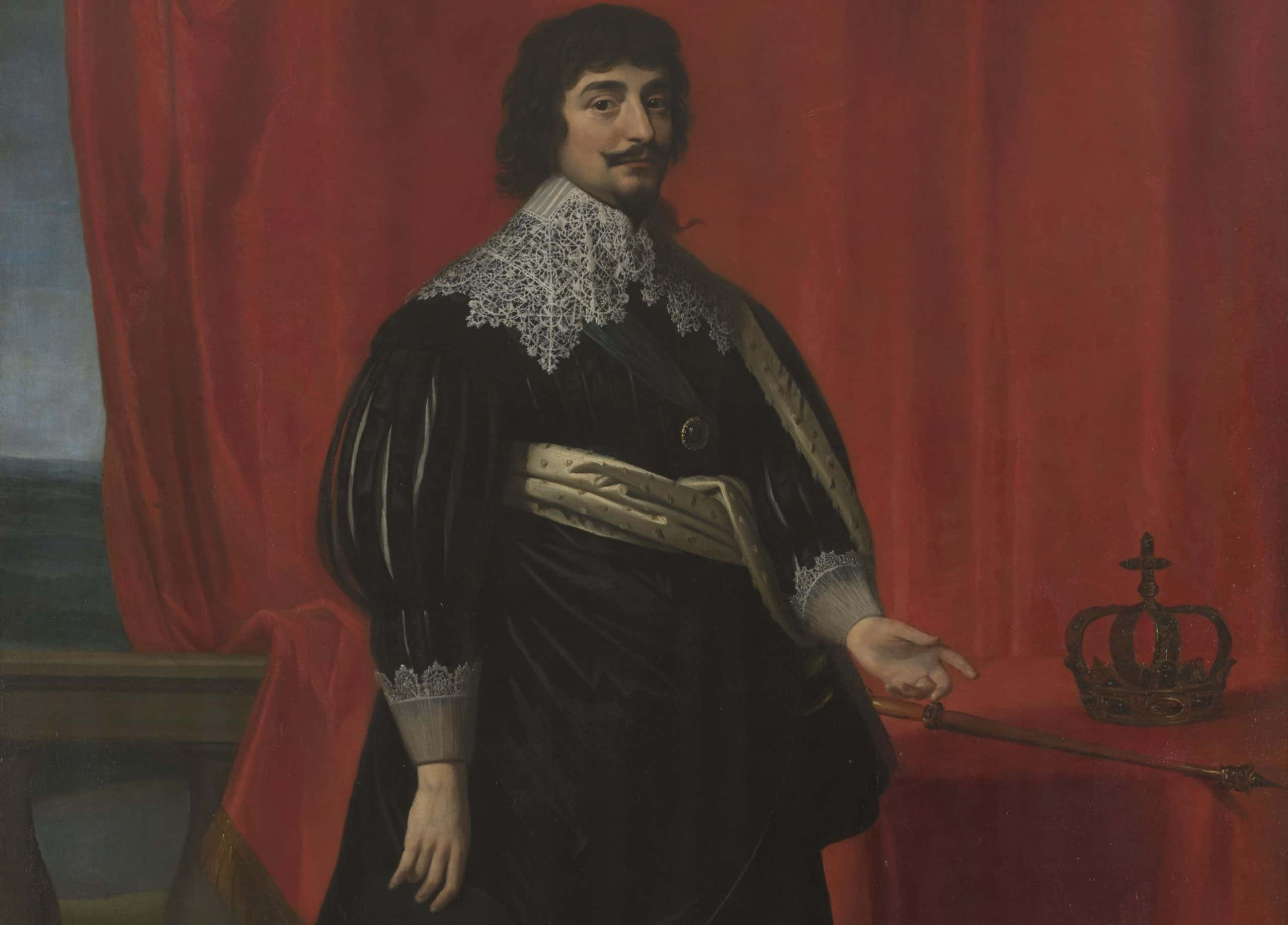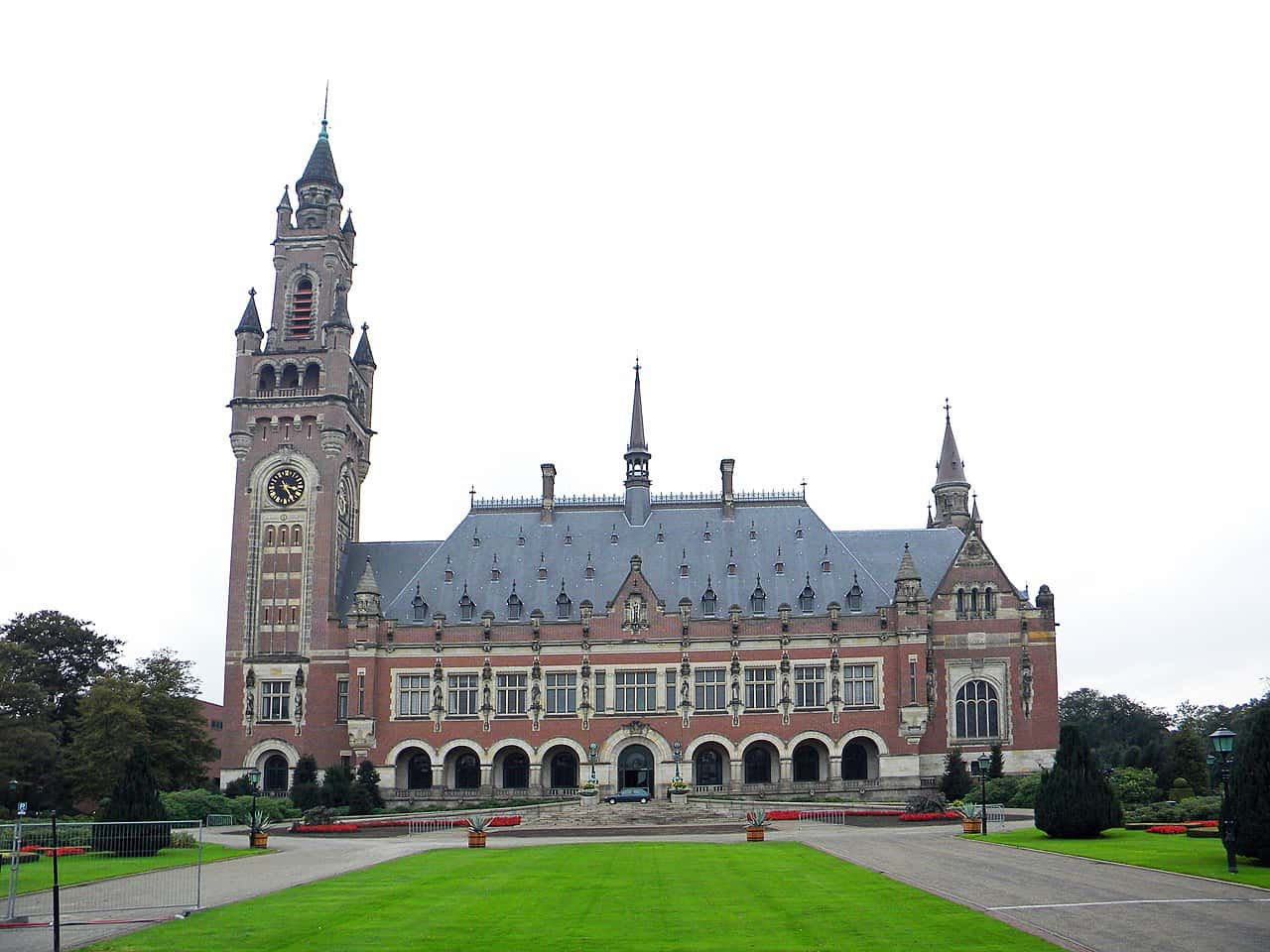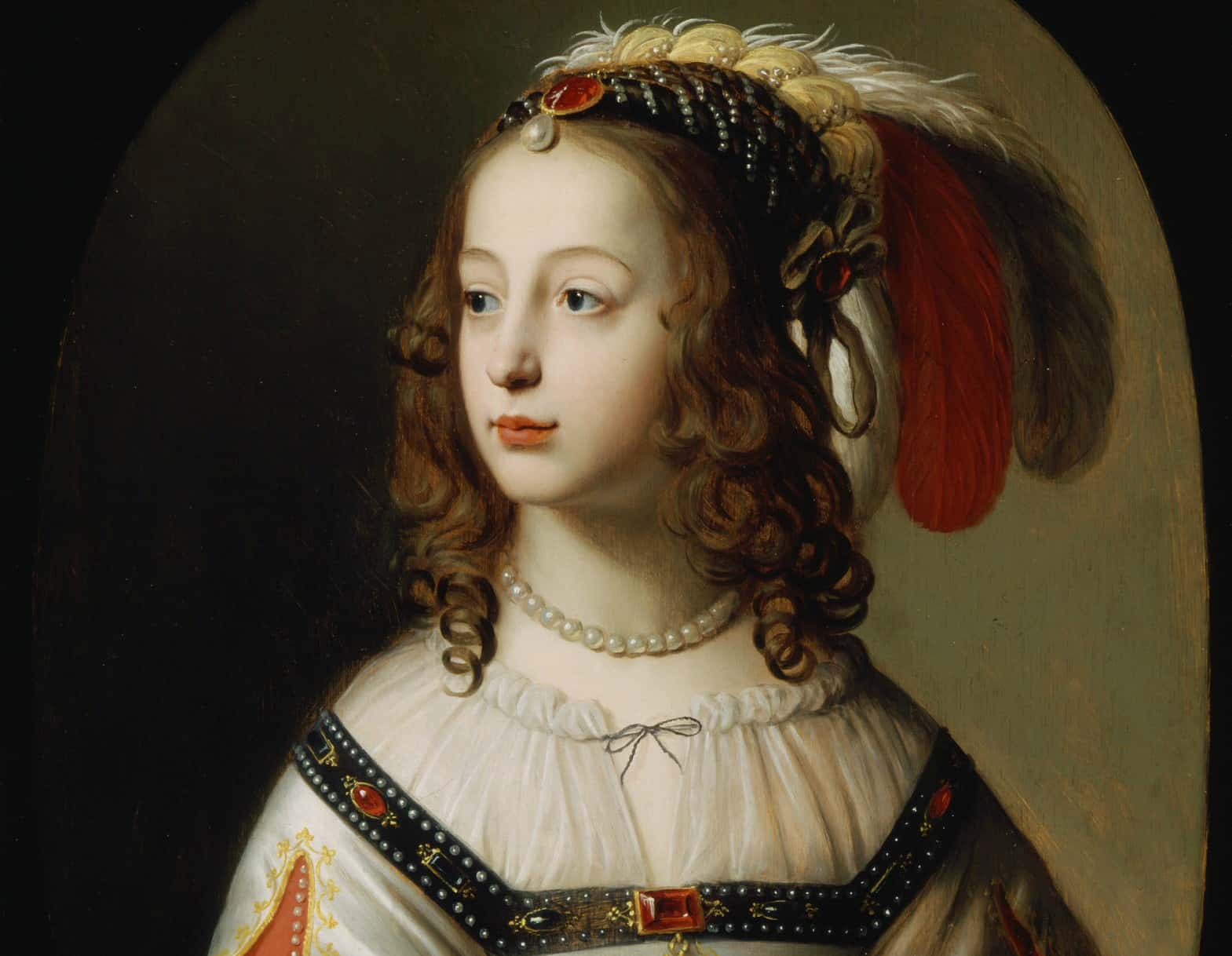We’ve all heard it’s better to have loved and lost than never to have loved at all, but is that really true? And does the same rule apply to power? Would it be better to be king for a day than never at all? Frederick V was a monarch whose rule was so short they called him the “Winter King".
From his rise to the top to his lightning-fast downfall, Frederick V had one of the most action-packed reigns in history.
1. He Was Born In A Distinguished Household
Frederick was born in 1596, entering life in the lap of luxury. As a sign of his extravagant pedigree, all you need to know is that his royal family traced their ancestry back to Charlemagne. Combine that with the fact that he was the heir apparent of one of the most powerful Protestant princes meant Frederick was destined for great things. He would one day step into his father’s shoes and become Elector of the Rhenish Palatinate.

2. He Was A Chip Off The Old Block
Frederick’s dad was fond of luxury and extravagant displays of wealth, and though Frederick hardly spent any time with him, he was the same. It would later become a source of tension with his mom, who’d been raised with more frugal standards and found these indulgences excessive.
3. He Was Sent Away
You’d think the Elector Palatinate and his wife would keep their first-born son and heir close to them, but sadly nothing could be further from the truth. Frederick’s parents had no choice but to send him away soon after he was born. This was because the Palatinate’s capital was beset by bubonic plague at the time. Because of the carnage, baby Frederick spent the first two years of his life away in what's now Bavaria.
And this wouldn’t be the last time he’d be away from his parents either.
4. He Went To France For An Education
Although initially, Frederick lived away from his parents for two years, his parents sent him packing again when he turned eight. This time, he was off to the French King Henry IV’s court. Little Freddy's mom wanted her son to absorb some French refinement. Clearly, his mom’s plans worked. Frederick grew up to become a friendly, charming, and well-mannered young man.
Everything was going according to plan—until disaster struck.
5. He Suffered A Loss
When he was 14, Frederick experienced a huge tragedy. His father’s excessive drinking caught up with him and he passed at the young age of 36. Naturally, as his heir, Frederick was the next Elector of the Palatinate, but he was still too young to rule and someone had to rule as his regent until he came of age.
Luckily, his dad had the foresight to choose a regent before he passed, but this decision came with its fair share of drama.
6. He Made A Controversial Choice
Frederick’s closest male relative was Wolfgang William, and according to custom he should have been his regent. However, Wolfgang had a glaring shortcoming: He was Catholic. Naturally, that meant he was a no-go, so Frederick’s dad appointed another relative, John II, to take the reigns if he passed before little Freddy was old enough to rule. He probably hoped he'd stick around long enough that this wouldn't actually end up happening, but the grim reaper had other ideas.
To say the prince's choice caused drama would be an enormous understatement.
7. He Was In Hot Water
As you can imagine, the Prince's choice led to a lot of ill will between the noble houses. Amid Frederick's grief, the poor young ruler also found himself smack dab in the middle of all this unpleasantness. Not an ideal situation for a young boy who just lost his dad and suddenly found himself in power—and things would get far worse before they got better.
Talk about a baptism by fire...
8. He Began Ruling Before He Came Of Age
Although there isn’t much information on the dispute between the would-be heir and his replacement, it must have been quite serious because the freaking Holy Roman Emperor had to step in to make the men play nice. His solution was to allow Frederick to start ruling at 17, a year before he actually came of age.
9. He Couldn’t Just Marry For Love
As future Elector of the Palatinate, Frederick couldn’t just marry anyone, of course. His marriage had to be to someone who would help strengthen the Protestant states. That was why both his sisters married “leading Protestant princes” and his family sought a match in a powerful Protestant family for him as well.
There was no space for love in this equation, but luckily, fate would smile down upon him in this case.
10. His Mom Found A Perfect Match
As he couldn’t marry anyone he pleased, Frederick’s mom and advisors started looking for a suitable match for him as soon as he turned 16. They finally decided that Elizabeth Stuart, daughter of King James I of England would be perfect for him and the Palatinate. On the upside, the girl was young and beautiful, and she belonged to an important family.
It seemed like this marriage of convenience could totally work out. Emphasis on "could"...
11. He Wasn’t Her Only Suitor
Of course, the fact that Elizabeth was such a catch meant that she had plenty of contenders for her hand in marriage. Each of these belonged to powerful families, and King James almost decided to give her hand to a French monarch before his advisors reminded James that his potential son-in-law was Catholic and put the kaibosh on that idea.
Fortunately, Frederick was the same age as Elizabeth, good-looking, charming, and, most importantly, a “staunch defender of the Protestant faith". I think I hear wedding bells...
12. He Fell In Love
Frederick and Elizabeth both liked each other at first sight. Luckily for them, both knew French so that was the language they used to talk to each other. And they had a lot to talk about. Soon everyone noticed how Frederick delighted in “nothing but her company and conversation". Tragedy would strike before their relationship became official though.
13. His Feelings Were Reciprocated
One of the reasons that Elizabeth liked Frederick so much was because he quickly became friends with her older brother, Prince Henry. Elizabeth and Henry had always shared a very close bond, so getting her brother's seal of approval on her new beau was a major mark in Fred's favor. However, a terrible event was about to throw the new couple into a devastating conundrum.
14. Not Everyone Was Happy With Him Though
Prince Henry, Elizabeth’s beloved older brother, passed just one month after Frederick had come to court. This event absolutely devastated Elizabeth, but Frederick’s presence helped her deal with her loss. It looked like the couple would make it through Elizabeth's grief but unfortunately, they had an enemy—and their hatred just amplified after Henry's demise.
15. His Mother-In-Law Hated Him
The one person who did not think Frederick was good enough for Elizabeth was her own mother, Queen Anne. Yup, our boy Freddie had a classic monster-in-law to deal with. Elizabeth's mom strongly opposed the marriage, but against all odds, Liz stood firm. She cared for Frederick and the fact that Henry had liked him cemented her feelings for him.
16. He Had A Wedding To Remember
Frederick and Elizabeth married each other on Valentine’s Day in 1613, a few months after they met in person. The wedding took place in Whitehall Palace’s Royal Chapel, with many distinguished royal families forming the guest list. Attendees described the lavish ceremony as a “wonder of...magnificence". I'm glad these crazy kids had a nice start to their marriage, because trust me, the good times would not last for long.
17. He Became A Father
The Palatinate was already bowled over by their new, young princess, and she became even more popular after she gave birth to Frederick’s first son: Frederick Henry. He was born in January 1614, and was the apple of his grandmother’s eye. She took charge of him in the beginning, as Elizabeth was never a very doting mother. Despite this hiccup, everything seemed to be going well for the royal family. Well, for now.
18. His Son Suffered A Horrific Fate
The people celebrated the new heir's arrival widely, and Elizabeth ordered canon fire to make his birth announcement. Heartbreakingly, though, the happy times would not last for long. Frederick Henry he wouldn’t live to celebrate too many birthdays. He drowned while going to Amsterdam when he was just 15 years old.
19. He Had Some Other Strained Relationships
Apparently, King James explicitly asked Frederick to value Elizabeth's opinions more than his own mom's. If you think that sounds like palace life was about to get awkward, you'd be right. Frederick prioritized his wife over his mother, leading to strained relations between him and his mom, and a stilted, formal relationship between Elizabeth and her new mother-in-law.
20. He Prioritized His Wife’s Happiness
Frederick left no stone unturned to make sure his wife was happy. He expanded Heidelberg Castle, constructing the “Elizabeth Entrance,” to it. He also added a monkey house, a menagerie, and an Italian Renaissance-style garden. People called it the “eighth wonder of the world". But was Frederick paying the same kind of attention to his political commitments? Certainly doesn’t sound like it...
21. He Held A Meeting
Frederick decided he needed to do more than just build stuff for his new bride if he wanted to remain one of the “leading Protestant Princes” of the region. So he tried to make a new reputation for himself by hosting a meeting of his father's old alliance, the Protestant Union. Unfortunately for Frederick, it couldn't have gone worse if he'd tried.
22. He Got Very Sick
The reason the meeting wasn’t productive was that Frederick got a fever right before it. He was so sick that people worried that he wouldn't be able to attend his own summit. The worst passed though, and Frederick eventually got better, but he didn't exactly prove his doubters wrong when he finally turned up at the Alliance.
In Fred's first big act as King, he mostly seemed tired, sad, and aimless. It wasn't exactly the best start to his reign—and things wouldn't get better from there.
23. He Didn’t Like Too Much Responsibility
Frederick was young and newly-married to a woman he loved. Maybe he just wasn’t ready to rule the Palatinate at that point. After the disastrous summit, Fred inspired even more worries about his reign by peacing out of political life. He transferred most of his responsibilities to his chancellor, which most people agreed was not a great look for the new king.
24. He Got A Coveted Position
In 1618, Frederick found himself as a candidate for one heck of a prestigious gig. The Kingdom of Bohemia didn’t want the Holy Roman Emperor’s heir to rule over them because they were afraid he’d make the country go Catholic. They cast about for a Protestant king and Frederick’s name jumped to the top of their list.
As it turned out, they'd do anything to get him—and I mean that in the worst way.
25. The Rebels Were Furious
Over in Bohemia, things were getting real scary real fast. Rebels felt so up-in-arms about the idea of a Catholic leader that they started to rebel with chilling demonstrations. A group of rebels invaded the royal castle, found some nobles that they believed to be traitors, held a quickie trial only to find the men guilty, and then, saving the wildest act for last, threw the men out the window.
This was the gong show that Frederick might be walking into.
26. He Made Hard Choices
When Frederick discovered that the Bohemians were throwing his name around as the next King, he felt confused. He initially didn’t want to defy the high-powered Holy Roman Emperor, who praised Fred for his loyalty in the past (awkward) and who wanted the Bohemians to accept his heir as their new king.
But it soon turned out that Frederick was keeping a dark secret. He was saying one thing in public, and doing something very different in private.
27. He Plotted In Secret
During the Great Bohemian Revolt, Frederick acted like he didn't want to become the Bohemian King. But, at the same time, Frederick secretly plotted to send his men into the country so that they could support the rebels and further destabilize the territory. For a guy who demurely declined the crown, it sure sounds like Fred had some other plans...
28. He Took Control
Eventually, all the in-fighting and political intrigue came to a head in 1619, when the Holy Roman Emperor kicked the bucket. When it was actually time for his heir to step up to the throne, shocker, the Bohemian people were still ticked off at the idea of a Catholic leader. The noblemen in the territory formally refused to accept this guy as their ruler and all but rolled out the red carpet for Frederick.
He was now a king—but the way he got his power could not have been more catastrophic.
29. He May Have Listened To His Wife
In August, 1619, the Bohemian states elected Frederick as their king, and two days later Ferdinand became the Holy Roman Emperor. Frederick was the only elector who voted against him, clearly aligning himself with the Bohemians. He claimed he did this because he couldn’t “resist the will of the Almighty". He gave the same reason for accepting the crown, but that may not be the whole truth.
Propagandists said that Elizabeth influenced his decision, because she wanted the “queen” title.
30. Many Discouraged Him
Frederick sure didn’t become king because everyone in his social circle thought it was a good idea. In fact, almost all the other Protestant princes advised him strongly not to accept the title and throw his lot against the Emperor. Even his dad's old alliance, the Protestant Union, asked him not to meddle in the Bohemian affairs, and several of the smaller republics also discouraged him from it.
But Frederick had obviously made up his mind and there was no going back.
31. He Went To Prague
Frederick and Elizabeth went to Prague with a small entourage for his coronation on November 4, 1619, at the Cathedral in Prague Castle. Elizabeth’s coronation as the new queen took place just three days later. Although the region had suffered quite a bit because of the constant fighting, the locals celebrated the event lavishly.
For now at least, Frederick felt he’d made the right decision.
32. He Had Another Son
Just a month after the new Bohemian king and queen's lavish coronations, Elizabeth gave birth to the couple’s third son, Rupert. The Bohemians rejoiced at the baby boy's arrival, but shortly afterwards, his parents’ troubles began. Rupert was only one year old when the entire royal family went into exile. What led them to such drastic action? Buckle up...
33. His Reign Was Difficult
Frederick’s reign in Bohemia was an unmitigated disaster from the get-go. For starters, neither Frederick nor Elizabeth spoke Czech, which led to a complete absence of communication between the nobles, administrators and the King. The country’s finances were in tatters, and if Frederick increased taxes, he alienated the people, but if he didn’t, there was no way to collect funds to fight the Catholics.
But this was hardly the end of his troubles.
34. He Was Surrounded By Problems
As if things weren’t bad enough, Frederick’s Court Preacher decided to make them worse. He devoted almost all of his time to getting rid of religious icons, because they were linked to Calvinism. This really annoyed the local churches and priests, to the extent that Frederick tried to distance himself from his Preacher, claiming that he was going against his orders.
Couldn’t have been very confidence-inspiring to hear that the King couldn’t even reign in his own subject...
35. He Had Strong Enemies
Meanwhile Ferdinand was preparing for battle against Frederick and Bohemia. He signed treaties with powerful people like the leader of the Catholic League (formed in response to the Protestant Union) and other powerful princes. He promised them land and power in exchange of their support and eventually gave Frederick an ultimatum.
He had to leave Bohemia by 1st June, 1620, or Ferdinand would take matters in his own hands and throw him out.
36. Everyone Turned Against Him
Frederick decided to call the Protestant Union for a meeting, but that too ended terribly for him. Most of the princes didn’t bother to show up or send representatives, and those who came weren’t very vocal in supporting Frederick either in Bohemia, or in looking after his Palatine lands. Eventually, the Union signed the Ulm Treaty, declaring neutrality.
But there were worse things in store for Frederick.
37. He Realized He Couldn’t Count On Family
The most heartbreaking betrayal for Frederick was from his father-in-law. King James refused to support his young son-in-law in any of his plans against the Catholics. He completely dismissed the idea of sending any reinforcements in the form of men or arms. Elizabeth shouted with disgust when he sent her diamonds, saying she wished “he’d sent soldiers instead".
38. Decision-Making Wasn’t His Forte
Frederick just kept digging a deeper hole for himself. He hiked up taxes massively to pay for the impending battle. He also sold private jewels and used his own personal funds. And finally, he bankrupted the Palatinate by moving two tons of gold from there to Bohemia.
Sigh, can anyone else see the writing on the wall?
39. He Lost The Battle
Frederick’s enemies, the Imperial forces, set out to fight him in August. Instead of directly coming to Bohemia though, they marched through the Palatinate, capturing it easily. Frederick was unable to do anything to save his homeland. The officers then marched to Bohemia and easily pushed Frederick’s forces back towards Prague.
40. His Enemies Humiliated Him
The men tried to make a stand at White Mountain, just outside Prague, but the Imperial forces easily defeated them. With that, Frederick officially lost it all. As of November 8, 1620, exactly a year and a few days after he became king, he officially had no more control over the people that had literally invited him to rule. This defeat proved that he really was just a “Winter King".
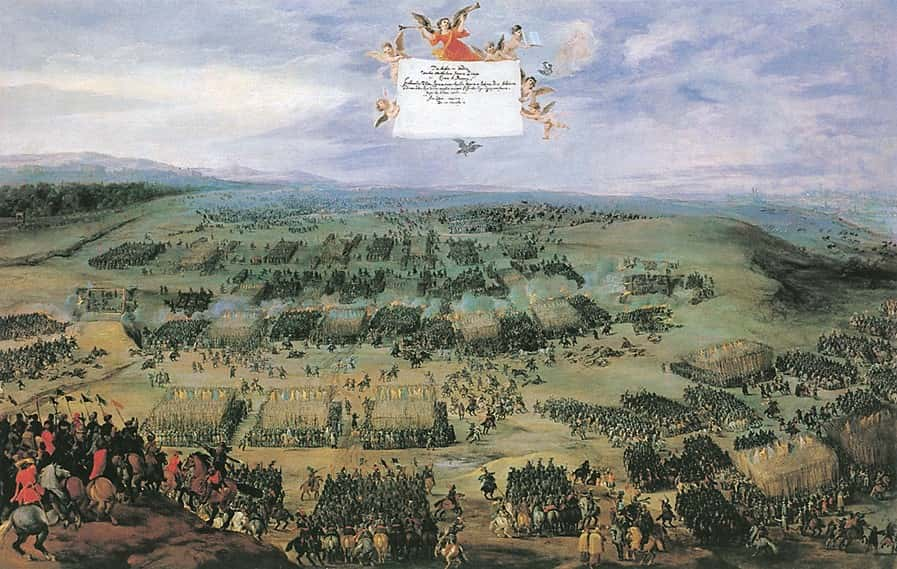 Wikipedia
Wikipedia
41. He Had To Flee
After his crushing defeat, Frederick only had one option left. He had to escape. Taking Elizabeth, his son, and some personal items, he fled to Silesia. He tried to convince the Silesians to rally with him and help him reconquer his ancestral lands, but they refused and he had to leave. He finally found shelter for himself and his family at The Hague because of his uncle, Prince Maurice.
42. He Became An Outlaw
Emperor Ferdinand declared Frederick an outlaw and transferred his electoral titles to the Duke of Bavaria, Maximilian, who’d been instrumental in defeating Frederick’s army in the Battle of White Mountain. A few of Frederick’s supporters tried to fight for his cause, and some spoke for him, nothing came out of it.
43. He Established A Government In Exile
In The Hague, Frederick decided to set up a Palatinate government-in-exile. However, his heart wasn’t in it and he left most of the day-to-day dealings in his counselors’ hands. He did, however, enjoy building and entertainment and spent most of the funds he had on that. He commissioned a winter palace where he spent most of his time walking and hunting.
Perhaps that’s what he should have focused on instead of deciding to become King of Bohemia.
 Wikipedia
Wikipedia
44. He Negotiated With The Emperor
Frederick attempted reconciling with the Emperor several times, but because he wanted his lands and titles restored, they couldn’t work out a compromise. Finally, in 1630, Frederick formally accepted his mistake in accepting the Bohemian crown. He sent a diplomat to plead his case in 1631, but tragedy struck before those discussions made any headway.
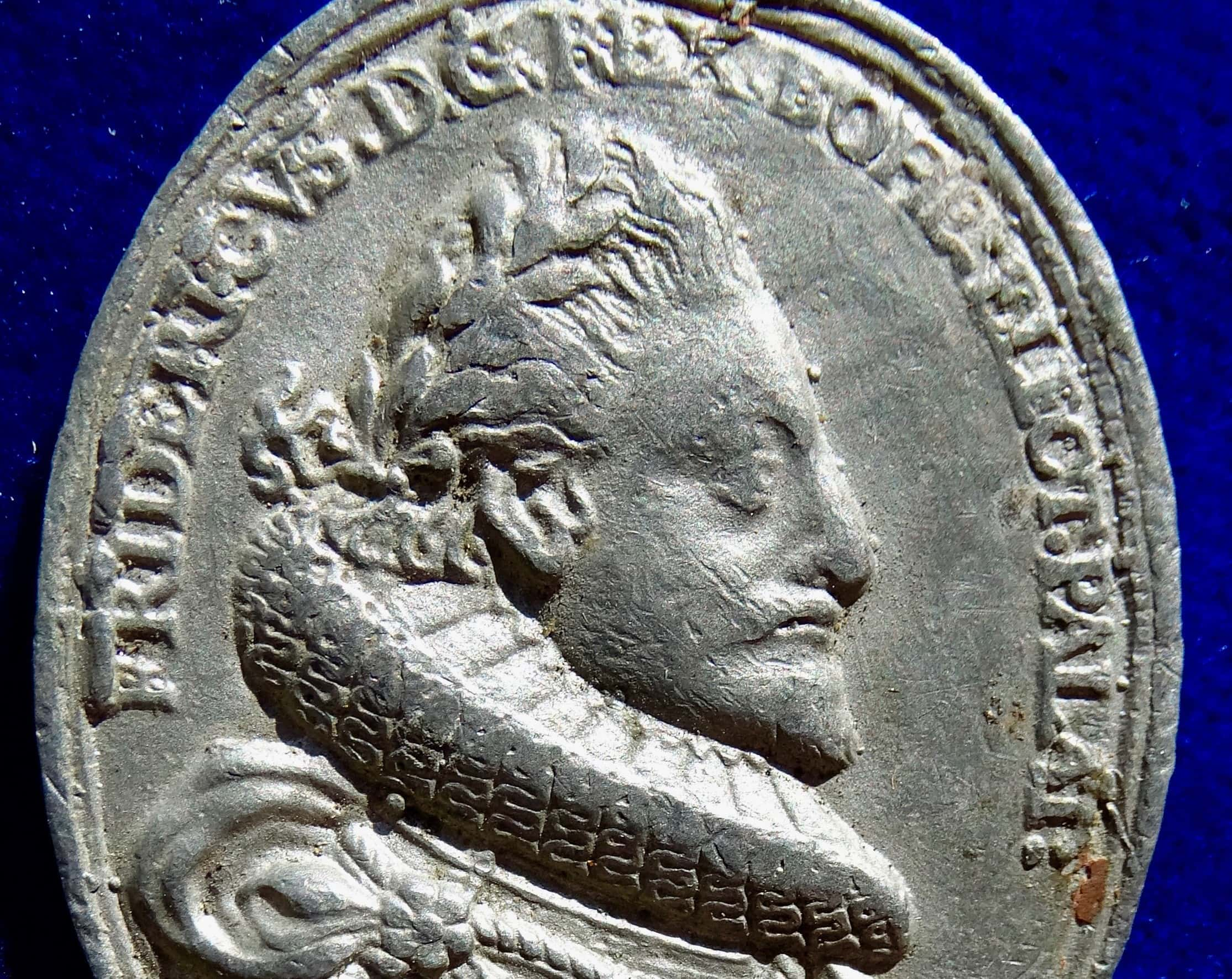 Wikipedia
Wikipedia
45. He Got Sick Again
Frederick traveled to Frankfurt, to meet with the Swedish king, hoping he would help him regain his Palatinate. The king’s conditions, which included making the Palatinate a fief of Sweden, weren’t acceptable to Frederick and he left his court, intending to go back to The Hague. Unfortunately, he contracted a dangerous infection soon afterward.
 Wikipedia
Wikipedia
46. He Didn’t Make It
Frederick had traveled to Mainz when the fever overtook him and he had to call a physician to check up on him. Unfortunately, the infection only got worse, and he finally passed in November 1632. Like his father before him, Frederick perished at an incredibly young age. The ex-king was only 36 years old.
47. His Wife Mourned Him
Elizabeth fell in a deep mourning when she learned of Frederick’s passing. For as long as she lived after that, she had all her rooms, walls, and beds covered in black. She even used black sealing wax to seal her letters after that.
48. He Had Many Kids
Frederick and Elizabeth had a happy, if short-lived marriage. Although they went through a lot of distress, and lost all they had owned, they remained in love with each other. The couple had 13 kids together.
49. His Son Got Back His Title
Elizabeth may not have been a very loving mother, but she campaigned tirelessly after Frederick’s passing to restore the title to her son. She succeeded. Her second son, Charles Louis became Elector of the Palatinate in 1648. However, she refused to join him there again, and remained in The Hague, only moving to England in the last year of her life.
50. His Daughter Was The Mother Of Kings
Frederick may have never thought it could happen, but his daughter Sophia, his twelfth child, became heir presumptive of the English and Irish thrones under the Act of Settlement 1701. Her son ascended the throne as King George I of Great Britain, and her daughter married Frederick I of Prussia, from whom Prussian and German monarchs descended.
To think the Winter King would have such royal descendants.


